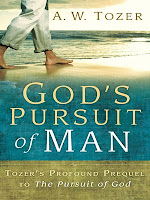So in 2019 I'm hoping to cut way back on screen/scrolling time and read more non-digital books. It is appropriate that the first physical book I read this year was The Shallow: What the Internet is Doing to Our Brains by Nicholas Carr.
If I could sum up the book in a few sentences, it would be, "The distractions of the internet make deep reading next to impossible. Without deep reading there is no deep thinking." What Carr didn't say, but what kept coming to my mind, was "If no one is thinking deeply, what will happen to beautifully crafted sentences? What is the future, not just of reading, but of writing?" Kudos to me for not skipping the overly technical chapters (even when I wanted to.) There is a legitimate time and place for skimming, but since I was attempting to retrain my brain to pay attention, it was probably good that I started with a hard book. After struggling through the first 40 pages, I finally hit my stride.
Of the many quotes I marked, most are too obvious to be enlightening so I'll post just a few.
The computer is so much our servant that it would seem churlish to notice that it is also our master. (p. 4)
The Net's interactivity gives us powerful new tools for finding information, expressing ourselves, and conversing with others. It also turns us into lab rats constantly pressing levers to get tiny pellets of social or intellectual nourishment. (p. 117)
What determines what we remember and what we forget? The key to memory consolidation is attentiveness. Storing explicit memories and forming connections between them requires strong mental concentration, amplified by repetition or by intense intellectual or emotional engagement. The sharper the attention, the sharper the memory. (p. 193)
Carr maintains that most modern technologies are dividing our attention thereby causing a loss of concentration. I don't think anyone can argue with that. The issue is what are we going to do about it? I, for one, plan to keep my brain in good working order by reading more carefully, spending less time on electronic devices, and memorizing chunks of poetry and scripture.
Any thoughts?
Blessings,







